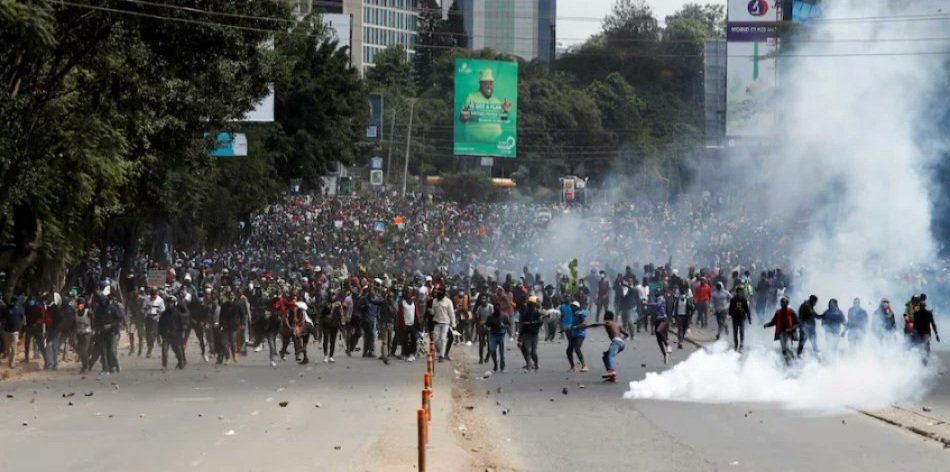Protests erupted once more in Kenya’s capital, Nairobi, and other regions on Tuesday over a finance bill that would significantly raise the cost of living. This unrest persists even after President William Ruto stated he would not sign the bill following the storming of parliament last week.
In Nairobi, police used tear gas to disperse protesters, while many businesses remained shut to avoid potential looting. The main highway leading to Kenya’s second largest city, Mombasa, was blocked as protesters set bonfires.
Who else is as proud of Kenyans as I am today? Imagine if this was Nigeria. But I’m hopeful that this historic revolutionary act will birth unity of purpose amongst youths across the continent, especially in Nigeria. Fear has now been murdered in Kenya. Death is no longer a… pic.twitter.com/frXEUkNsio
— J. C. Okechukwu (@jcokechukwu) July 2, 2024
Concerns are mounting that President Ruto might reconsider and sign the finance bill before next week’s deadline. Some protesters are also demanding Ruto’s resignation, accusing him of poor governance.
However, members of the youth-led protests voiced concerns about the infiltration of the movement by those seeking to incite violence. Hanifa Farsafi, an organizer, expressed this worry on the social media platform X on Tuesday, writing,
“Goons have infiltrated.”
The previous week’s protests turned deadly as police opened fire. The Kenya National Human Rights Commission reported 39 deaths over the two weeks of unrest, while President Ruto cited the number as 19 during a statement on Sunday.
In response to the turmoil, President Ruto has proposed dialogue with Kenyan youth and promised to implement budget cuts on travel and hospitality expenses for his office, addressing some of the protesters’ demands. Despite these promises, widespread dissatisfaction remains due to high unemployment rates and rising prices, exacerbated by the perceived opulence of the president and senior officials.
The youth-led but leaderless protest movement has expressed distrust in the president’s commitment to his new austerity measures. Skepticism is high regarding Ruto’s willingness to genuinely address the economic challenges facing ordinary Kenyans.
Kenya’s main opposition party on Tuesday demanded that Ruto’s government take responsibility for the deaths that occurred during the protests last week.
Economist Ken Gichinga suggested that the government needs to adopt a different strategy for tax reforms to stimulate economic growth.
“The Gen Zs are the most affected by the unemployment,”
Gichinga told The Associated Press.
The situation remains tense as the deadline for the finance bill approaches, with the potential for further unrest if the government does not take decisive and inclusive action.

















